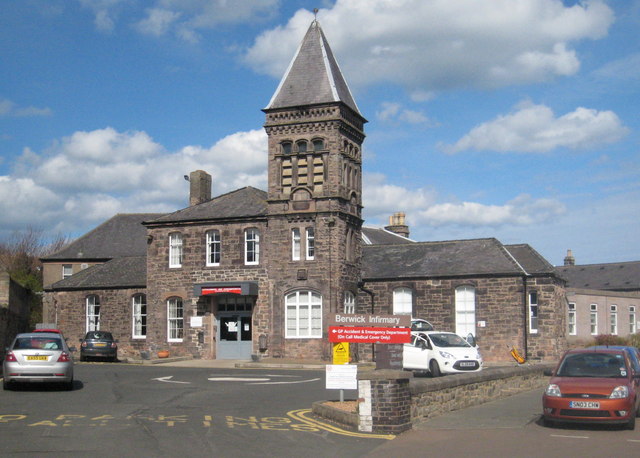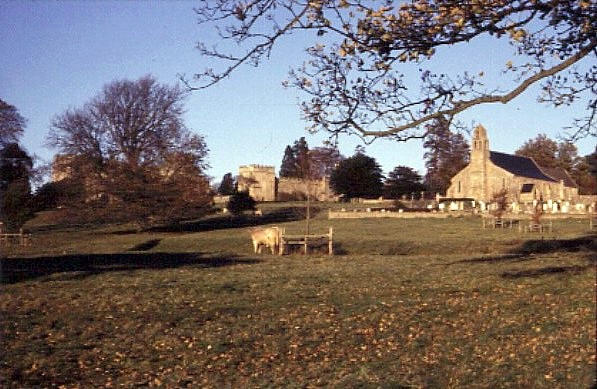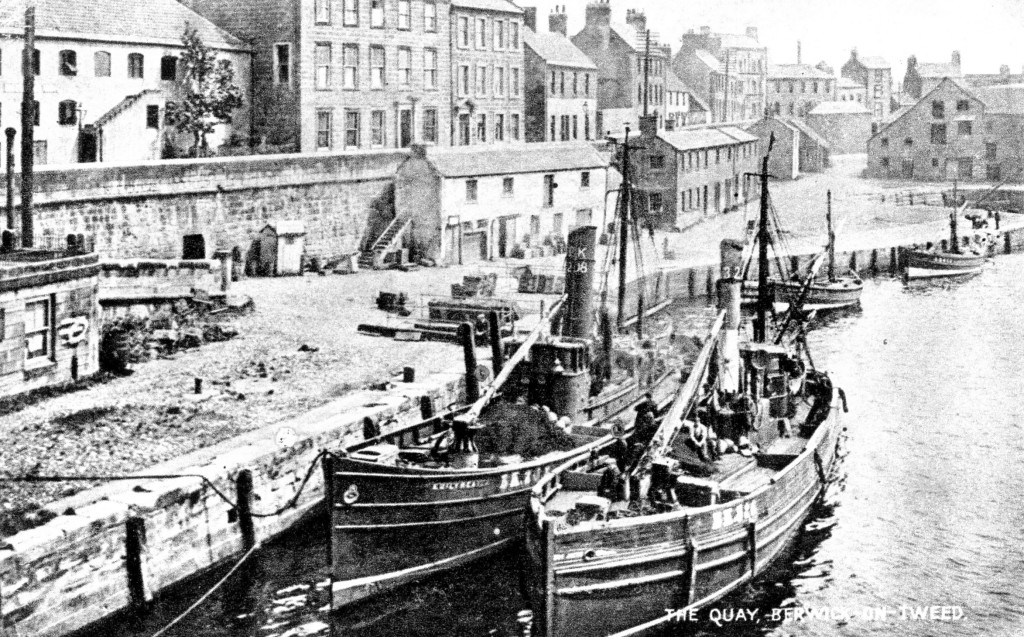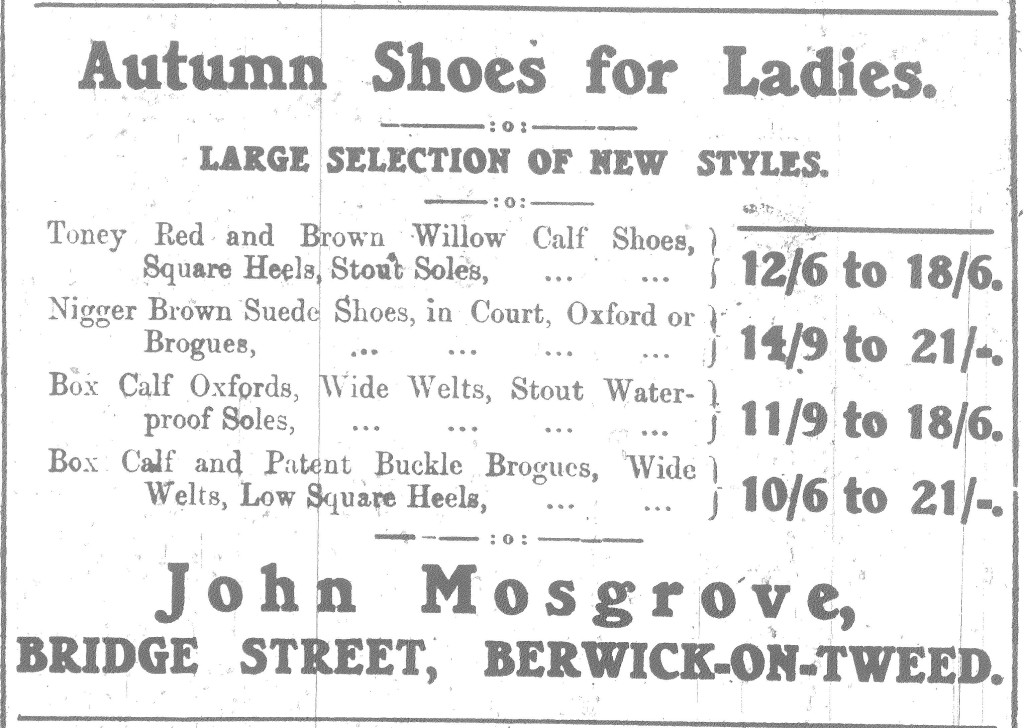BERWICK ADVERTISER, 5 MAY 1916
BERWICK BOUNDS RIDING
Quiet Ceremony
For the 308th time the customary riding of Berwick Bounds took place on Monday. Few gentlemen made the round of the marches by conveyance, but there was again a fair proportion of equestrians, the number only being one short from that of last year. At twelve o’clock the procession led off from the parade, where a large concourse of spectators had assembled to witness the gathering, by way of Cowport Gate to the Magdalene Field and Jingling Bridge, when they struck the main road. The conveyances followed the usual route by way of Church Street, High Street, Castlegate, and North Road. Arriving at Whitadder Bridge the company were provided with a liberal refreshment, and the usual ceremonies were gone through. The company arrived back during the afternoon, and a halt being called in front of the Town Hall, the mayor briefly returned his thanks to all who had completed the circuit.

The horsemen were as follows:- Mr John Cameron, Vetinary Surgeon, Berwick; Mr R. Buchannan, Berwick; Master Moffat, West Edge; Capt. J. C. Collingwood and Miss Collingwood.
There also rode in the conveyances – His Worship the Mayor (Ald. J. W. Plenderleith), Sheriff Matthew Ross, Councillor Thos. Wilson, Mr Jas. Gibson, Acting Town Clerk; and Mr Johnston, Sergeant-at-Mace- first carriage. Ald. Maclagan, Mr H. W. Willits, Councillor Brewis, Councillor W. J. Dixon, Chief Constable Nicholson, Councillor F. Richardson, Councillor W. Richardson, Ald. H. Greenwood, and Mr Blaikie, jun., acting Sergeant-at-Mace – second carriage. Mr Robert Jeffrey and Private Albert Richardson – third carriage. Five cyclists also started out upon the round.
This year it was agreed that owing to the exceptional period of national stress through which we are passing, the no Bounds Dinner be held. It need not, however, be inferred that the absence of the customary spread had anything at all to do with the small attendance present.
OFFICER AND PRIVATE
BADLY INJURED BY GRENADE AT BELFORD
A most unfortunate and serious accident took place at Belford in the early hours of Tuesday evening in which a Lieutenant and a Private of the Northern Cyclists quartered in the district were involved. It appears that the officer was in charge of a small section a little way out of the village and was instructing the men in the art of grenade throwing. In the meantime, it is inadvisable to record how the unfortunate event occurred, but we may state that for some accidental reason a grenade exploded near to the Private and the Lieutenant, both of whom sustained wounds of an extensive and serious character. They were removed with all speed to Alnwick Infirmary, where, up to the time of writing, the lie in a rather critical condition. The sad occurrence cast quite a gloom over the village, where both the unfortunate men were well known. The hope is freely expressed on all hands that science may be able to alleviate their sever suffering.
LOCAL NEWS
Accident to a Well Known Butcher – The many friends of Mr Shiel Dods butcher, Berwick, will learn with regret that he met with a nasty accident on Monday morning at his slaughter house, Tweedmouth. He had been dispatching and weighing sheep for the London market, when in turning to leave his foot slipped, and he was brought to the ground with a nasty jerk. It was thought at first that he had broken his leg, but on being examined by Dr C. L. Fraser, it was discovered that the sinew of his right leg had been snapped. He was removed home to his residence in High Street. It is understood while the injury to Mr Dods is not of a serious character, it has been decided to remove him to the Infirmary, where a slight operation will be performed. A specialist may be called in to assist.

Ambulance Aid in time Emergency – Our readers will probably be interested and gratified to learn that arrangements have been made for coping with any circumstances which require ambulance assistance in times of emergency during the war. In consequence of a recent meeting held between representatives of the Infirmary, the Chief Constable, and officials of the two local ambulance organisations, and subsequently with the Chief Scout Master, the following arrangements have been made. By courtesy of the parties interested three stations will be available: (1) for Berwick, “The Infirmary, “ (2) for Tweedmouth, “The Mitchell Memorial Hall” in Kiln Hill and (3) for Spittal. “The Police Station” at Spittal. As soon as occasion arises, and if sufficient warning be given, a staff of ambulance workers will immediately proceed to each of these stations, and boy scouts will, also, be detailed to each station to act as messengers and orderlies. Steps have been taken to furnish each station with the necessary appliances, and it is hoped by these means that, in the unhappy event of first aid being required, ample assistance will be forthcoming.
WEDDING BELLS IN WAR TIME
Pretty Ceremony at Ford
On Tuesday, May 2nd, at Ford Parish Church, Northumberland, the marriage took place of the Rev. T. J. Parry, temporary chaplain at the Front, second son of Mr James Parry of Halesworth, Suffolk, and Miss Betty Neligan, eldest daughter of the Right Rev. Bishop Neligan, D.D., and Mrs Neligan of Ford Rectory, Northumberland.
The ceremony was performed by Bishop Neligan, the father of the bride, and was choral. The Church was most tastefully decorated with flowers, kindly given by Lord Joicey, from the gardens of Ford Castle.
The bride who walked up the aisle on the arm of her brother, Cadet M. D. M. Neligan, R.N., was given away by her mother, who wore a pale grey dress of liberty silk and chiffon and a black hat.
The bride was charmingly dressed in a white liberty crepe de chine gown with a simple train and tulle veil, and carried a beautiful bouquet of white flowers. She was attended by two bridesmaids, Miss Helen Neligan (sister) and Miss Joan Ackland (cousin), whose pretty dresses were shell pink liberty crepe de chine with black picture hats and wreaths of forget-me-nots. They carried lovely bouquets of pink carnations and silver chain bags, the gift of the bridegroom.
The best man was Captain Parry, D.S.O., 4th Suffolk Regiment, brother of the bridegroom. Both he and his brother were in service khaki uniforms.
The charming bouquets were made by Mr Jackson, head gardener of Ford Castle.

The Church was filled with friends and parishioners, including Lord Joicey, the Hon. Marguerite Joicey, and Mrs Macray, grandmother of the bride. All the friends assembled at the Rectory afterwards, when a presentation was made by Lord Joicey and Mr Gray, on behalf of the parishioners of Ford Parish of a very handsome pair of tall silver candlesticks. The presents included many handsome cheques.
The happy couple left later in a motor for St. Mary’s Loch, where the short honeymoon will be spent before the bridegroom returns to the Front. The bride’s going away dress was a dark blue gabardine coat and skirt with pale chiffon blouse and black straw hat with pale blue flowers.




